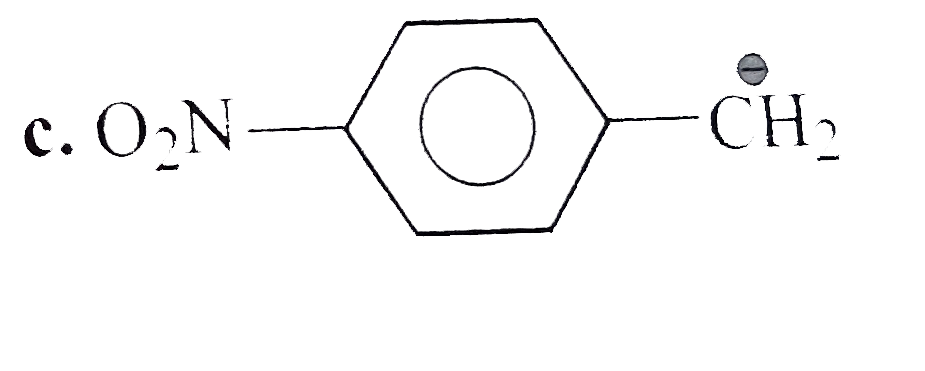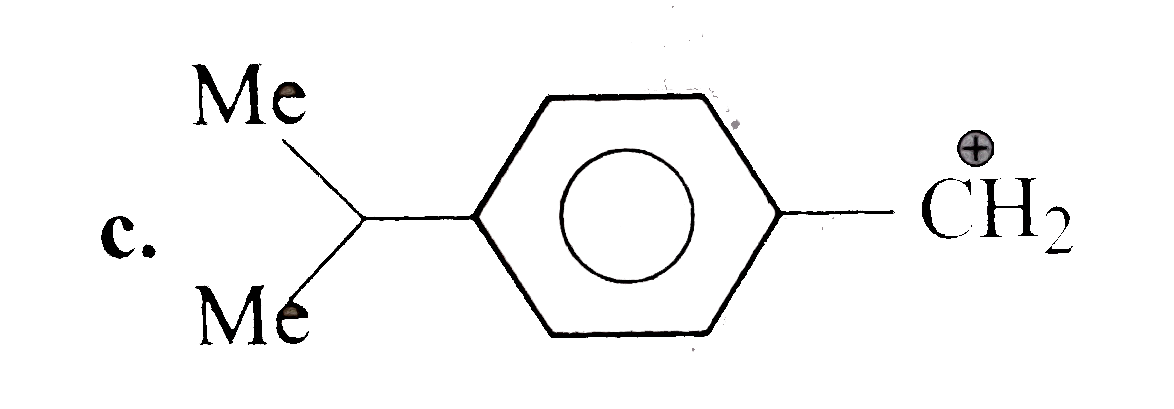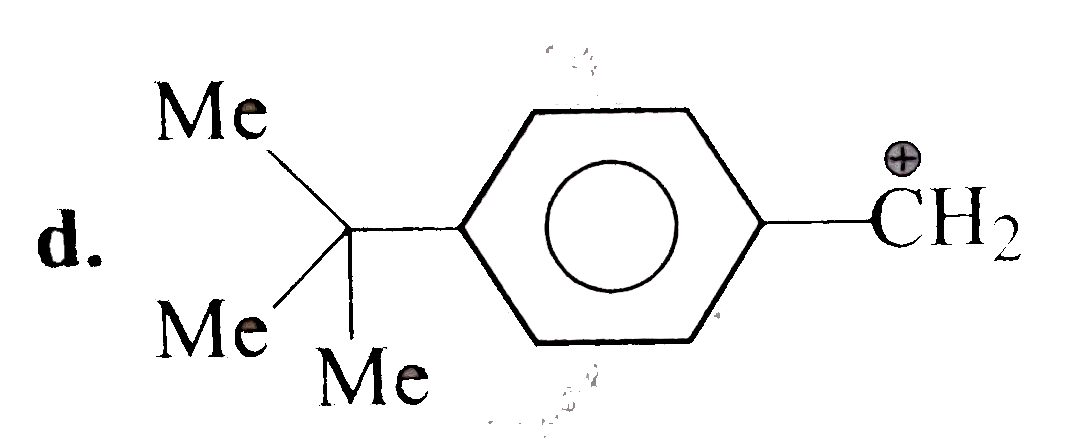An organic reaction occurs by using reagents called electrophiles and nucleophiles via the formation of some reactive intermediates called carbocations, carbanions, free radicals, carbenes, nitrenes, radical cations, and radical anions.
The most stable free radical is :
PhCH2.CH2
Me.CH2
Me2.CH
Ph.CHMe
The correct Answer is:D
(d) 2∘ Benzyl radical
Topper's Solved these Questions
- BOOK - CENGAGE CHEMISTRYCHAPTER - GENERAL ORGANIC CHEMISTRYEXERCISE - Multiple Correct22videos
GENERAL ORGANIC CHEMISTRY
- BOOK - CENGAGE CHEMISTRYCHAPTER - GENERAL ORGANIC CHEMISTRYEXERCISE - Single Correct25videos
GENERAL ORGANIC CHEMISTRY
- BOOK - CENGAGE CHEMISTRYCHAPTER - GENERAL ORGANIC CHEMISTRYEXERCISE - Concept16videos
GENERAL ORGANIC CHEMISTRY
- BOOK - CENGAGE CHEMISTRYCHAPTER - CLASSIFICATION AND NOMENCLATURE OF ORGANIC COMPOUNDSEXERCISE - Analytical and Descriptive Type3videos
CLASSIFICATION AND NOMENCLATURE OF ORGANIC COMPOUNDS
- BOOK - CENGAGE CHEMISTRYCHAPTER - HYDROGEN, WATER AND HYDROGEN PEROXIDEEXERCISE - Subjective Archive (Subjective)3videos
HYDROGEN, WATER AND HYDROGEN PEROXIDE
Similar Questions
1.correlation OF lone pairs and formal charges, 2.reaction intermediates a) carbocation, b)carbanion,c) free radicals
View SolutionAn organic reaction occurs by using reagents called electrophiles and nucleophiles via the formation of some reactive intermediates called carbocations, carbanions, free radicals, carbenes, nitrenes, radical cations, and radical anions.
Which of the following contains electrophiles only ?View Solution
Knowledge Check
- Question 1 - Select One
An organic reaction occurs by using reagents called electrophiles and nucleophiles via the formation of some reactive intermediates called carbocations, carbanions, free radicals, carbenes, nitrenes, radical cations, and radical anions.
The most stable carbanion is :APhCH2ӨCH2BPhӨCH2C D
D
- Question 2 - Select One
An organic reaction occurs by using reagents called electrophiles and nucleophiles via the formation of some reactive intermediates called carbocations, carbanions, free radicals, carbenes, nitrenes, radical cations, and radical anions.
The most stable carbocation is :APh⊕CH2B C
C D
D
- Question 3 - Select One
An organic reaction occurs by using reagents called electrophiles and nucleophiles via the formation of some reactive intermediates called carbocations, carbanions, free radicals, carbenes, nitrenes, radical cations, and radical anions.
The least stable carbocation is :A B
B C
C D
D
An organic reaction occurs by using reagents called electrophiles and nucleophiles via the formation of some reactive intermediates called carbocations, carbanions, free radicals, carbenes, nitrenes, radical cations, and radical anions.
Which of the following contains nucleophiles only ?View SolutionWhich free radical is the most stable-
View SolutionWhich of the following is the most stable free radical?
View SolutionWhich of the following is the most stable Cation
View SolutionThe most Carbocations, carbanions, free radicals and radical cation are reactive carbon intermediates. Their hybrid orbitals respectively are
View Solution

